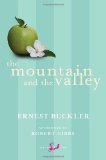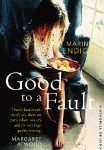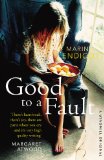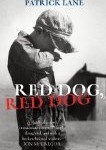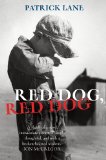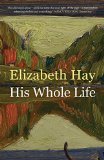 Source: Free review copy received from publisher
Source: Free review copy received from publisher
Five words from the blurb: boy, dog, family, Ontario, journey
Elizabeth Hay is an author I’ve heard mentioned many times. She won the Giller Prize in 2007 for Late Nights on Air and her name always crops up if you talk about Canadian literature for any length of time. I’ve been meaning to try her work for a while, so when a review copy of this book dropped through my letter box I decided it was the perfect opportunity to sample her writing.
His Whole Life is a beautifully written portrait of the relationship between ten-year-old Jim and his family. The book perfectly captures the subtle nuances of a child this age, showing how their innocence is slowly eroded.
The novel begins with the family driving from New York to Ontario for their summer holiday. Jim’s mother was born in Canada and his father in America. This divide becomes the central theme for the book – especially the longing for a place and time you can no longer be in:
“Do you remember,” they would say to each other, “that frosty Thanksgiving Monday when the leaves fell on the water like rain?” And in their minds they would be back in this moment when everything was still – there was no wind – yet everything was changing.
Each scene was created with immense skill and I was quickly drawn into this family’s life. Unfortunately there was little forward momentum and the detail became overwhelming. It captured ordinary life so well that I felt I’d heard it all before and I became bored by the tediousness of it all.
Much of the book was influenced by the closely fought 1995 referendum on independence for Quebec. I suspect it will have a much greater impact on those who are familiar with Canadian politics, but it generates discussions on separation and belonging that have relevance for the UK’s current referendum on EU membership.
His Whole Life is a beautifully written character study, with many fantastic scenes. It wasn’t quite to my taste, but anyone who enjoys slow moving character studies will gain a lot from reading it.

.
The thoughts of other bloggers:
….a thoroughly absorbing and thought-provoking novel, beautifully expressed. A Life in Books
….a gorgeous and evocative work. Have Mat, Will Travel
….she really captures the often strange dynamic of families. Janice S

